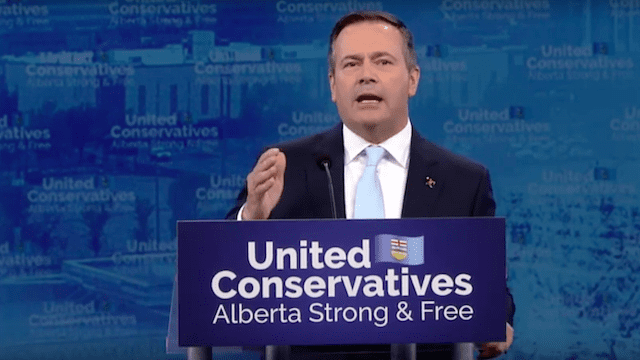
None of the 19 Indigenous candidates who ran for all parties in Alberta’s provincial election Tuesday were successful in their bids for public office.
“I’m discouraged,” said Taz Bouchier, a First Nation candidate for the Green Party in Edmonton.
“That speaks really more of the work that needs to be done in this province in trusting the abilities of our Indigenous people to be leaders.”
Racism may also be to blame, said Vincent Rain, an Indigenous rights advocate who placed third in Lesser Slave Lake for the Alberta Party.
“The overall experience was actually pretty horrible,” he said, explaining “it was really tough to swallow sometimes that non-Indigenous individuals in that riding were really cold.
“People didn’t want to really shake my hand.”
Voters ended Rachel Notley and the New Democratic Party’s run after one term and instead elected Jason Kenney’s United Conservative Party (UCP) in a landslide vote.
The UCP has promised to put people back to work in the oil patch.
Kenney wasted no time declaring Alberta “open for business,” and vowed to build pipelines to carry oil to market, scrap the federal carbon tax and make it easier for companies to invest in the province.
Michelle Robinson, an Indigenous Liberal party candidate in Calgary, said the new government’s direction could mean conflict for Indigenous people who are often on the front lines against resource development.
“We know we are going to have a very hard road ahead of us,” she said in a telephone interview. “But we’re used to that.”
Prime Minister Justin Trudeau and Assembly of First Nations (AFN) National Chief Perry Bellegarde both acknowledged Kenney’s victory on Twitter.
Congratulations to Premier-Elect on your big electoral win tonight! #FirstNations look forward to working with both you and Regional Chief on advancing First Nations’ priorities in #Alberta. #abvote
— Perry Bellegarde () April 17, 2019
Marlene Poitras from Maskwacis First Nation outside Edmonton is the AFN’s regional chief in Alberta. She declined to give her personal opinion on pipeline development.
“I’ll have to see the direction leadership wishes to move in,” she said, noting many of the province’s 47 First Nations are pro-development.
“There’s a polarity in the province: there’s those that are concerned about the environment and climate change, and those that are focused on building their economies and getting our First Nations out of poverty.”
Poitras said she’ll have to work harder without any Indigenous politicians in government.
“That gives us more the incentive to make sure we’re advocating and lobbying for Indigenous issues,” she added.











They supported the wrong party.
Racial background is no basis for electing anyone to government. The voters elect the candidates they consider most qualified to lead. Playing a racial card is a non-starter and irrelevant.